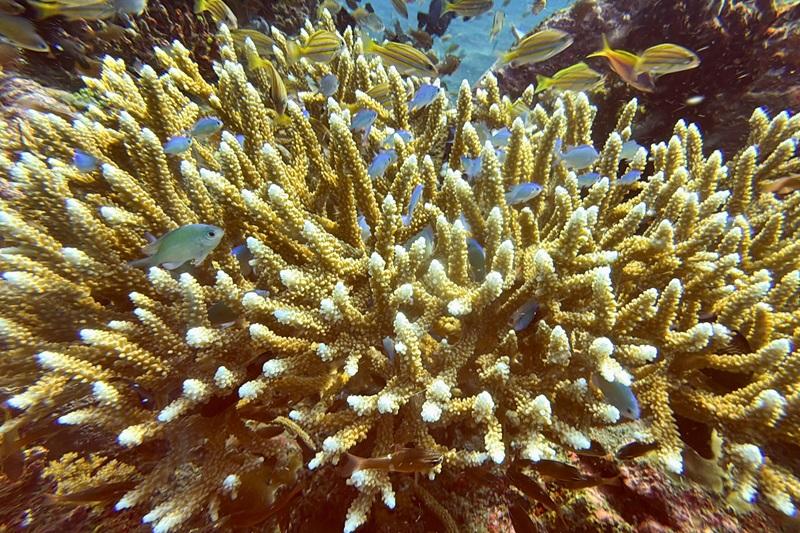UK scientists bred heat-tolerant corals

Scientists from Newcastle University in the United Kingdom have successfully bred corals that can survive intense marine heatwaves.
The study was carried out in partnership with the University of Victoria, the Horniman Museum and Gardens, the Palau International Coral Reef Center, the University of Derby, and the University of Exeter.
The scientists conducted selective breeding trials among parents with low heat tolerance and those with high heat tolerance.
“We conducted two experimental trials to selectively breed either for tolerance to a short-term 1-week +3.5°C stress or a long-term 1-month +2.5°C stress, with the latter being more typical of marine heatwave conditions,” the study read.
“This allowed us to estimate the genetic correlation between both traits and so determine whether selecting on short-term heat stress tolerance is expected to also enhance long-term stress tolerance,” it added. “This matters because short-term stress tolerance is easier to assay in practice and so select upon, but may be less critical to the survival of corals in nature.”
Results showed that selecting parent colonies for high rather than low heat tolerance increased the tolerance of adult offspring.
“Having high heat-tolerant parents provided enhanced heat stress resistance to offspring,” the scientists discovered.
The study added that high-heat-tolerant coral families could withstand approximately weeks of 1°C additional heat stress compared to the low-heat-tolerant families, which can only stand weeks of 0.8 and 0.9°C.
“Selective breeding for short-stress tolerance did not improve the ability of offspring to survive the long heat stress exposure. With no genetic correlation detected, these traits may be subject to independent genetic controls,” the scientists said.
Although selective breeding could improve coral population resilience, the experts suggest that the effectiveness of such interventions also demands urgent climate action.
“Without question, such efforts are only going to be worthwhile if in the long term we secure a future for coral reefs by rapidly reducing global carbon emissions and managing local-scale human disturbances. These remain the greatest priorities for coral reefs and the people who depend on them,” the study read.
According to the US National Oceanic and Atmospheric Administration's Coral Reef Watch, at least 54 countries and territories have experienced mass bleaching among their reefs since February 2023 due to climate change.
In the Philippines, scuba diving experts and enthusiasts have set up coral nurseries in Bauan, Batangas, to help in the propagation and recovery of damaged corals. — VBL, GMA Integrated News




